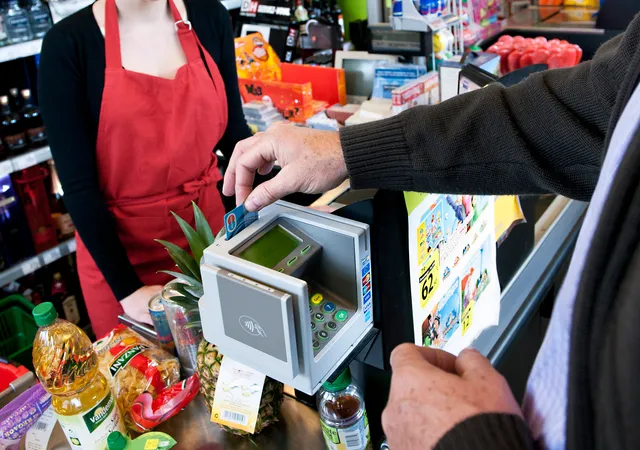Consumer rights organisation Test Achats has asked the Belgian Competition Authority to launch an investigation into 'greedflation' as supermarket prices remain high.
Although raw material prices have been falling for months, this has not been the case for consumers shopping in Belgian supermarkets, the organisation's latest grocery comparison last month showed.
"It is clear that the free market is not playing to the consumer's advantage here," Test Achats spokesperson Laura Clays said. "Supermarket prices can rise very quickly when wholesale prices rise on the international market, but in the opposite direction this hardly happens, and very slowly."
No price drop on shelves
The organisation compared 3,000 products from seven supermarkets bought in June with their prices last year and reported an inflation rate of 17%. This is lower than the record of 20.6% in March this year but remains much higher than average.
Vegetables are now one-third more expensive than a year ago, on average. Carrots (+70%) and onions (+63%) are particularly expensive, while ketchup (+48%), mustard (+46%) and frozen chips (+39%) complete the top five most expensive products, the organisation noted.
Test Achats added that it has hardly seen a price drop on the shelves despite falling prices on international wholesale markets.
For example, international grain prices have been falling since October last year, but only ten varieties of flour have become cheaper since then, with 17 varieties becoming more expensive. Dairy products and cooking oil prices have also continued to rise, despite cheaper raw materials.
Requesting investigation
These findings prompted Test Achats to ask the Competition Authority to launch an investigation into 'greedflation' (the tendency for companies to boost profits during inflationary periods through unnecessary price hikes).
The organisation wants to find out to what extent the producers or other parties are benefitting from it.
Earlier this year, the European Central Bank noted that this practice is present in several sectors. A study published last month also estimated that the phenomenon has cost the average Belgian €3,200 over the past two years, while Belgian companies made €35 billion in "opportunistic profits."
However, the Federal Planning Bureau said last month that it has seen few signs of greedflation. The National Bank of Belgium also reported that it has not significantly contributed to Belgium's soaring inflation rate and that it is not a widespread phenomenon.
Clays however has said that objective data is urgently needed "so that we can take the necessary measures to protect families' purchasing power better."
Stores in dire straits
In response to this call for an investigation, trade federation Comeos responded that Belgian supermarkets are facing the most difficult situation in the last 30 years, with margins in food distribution having fallen to an all-time low.
It argued that supermarkets are the last link in the chain and that they too are suffering. "Margins in food distribution have fallen to 1.29%. That means that on a €100 shopping trolley, the supermarket is left with €1.29."
The group added that price changes are not only determined by the cost of raw materials but that factors such as purchase costs, transport costs, wages, packaging, rent, energy and taxes also increase the cost of products as labelled in grocery stores.
Related News
- 'Greedflation' is not widespread in Belgium, study finds
- Leaking Economy: Belgians choosing to make their purchases abroad
Comeos concluded that prices "would have risen even more sharply if supermarkets had not reduced their margins and negotiated better terms with producers."


